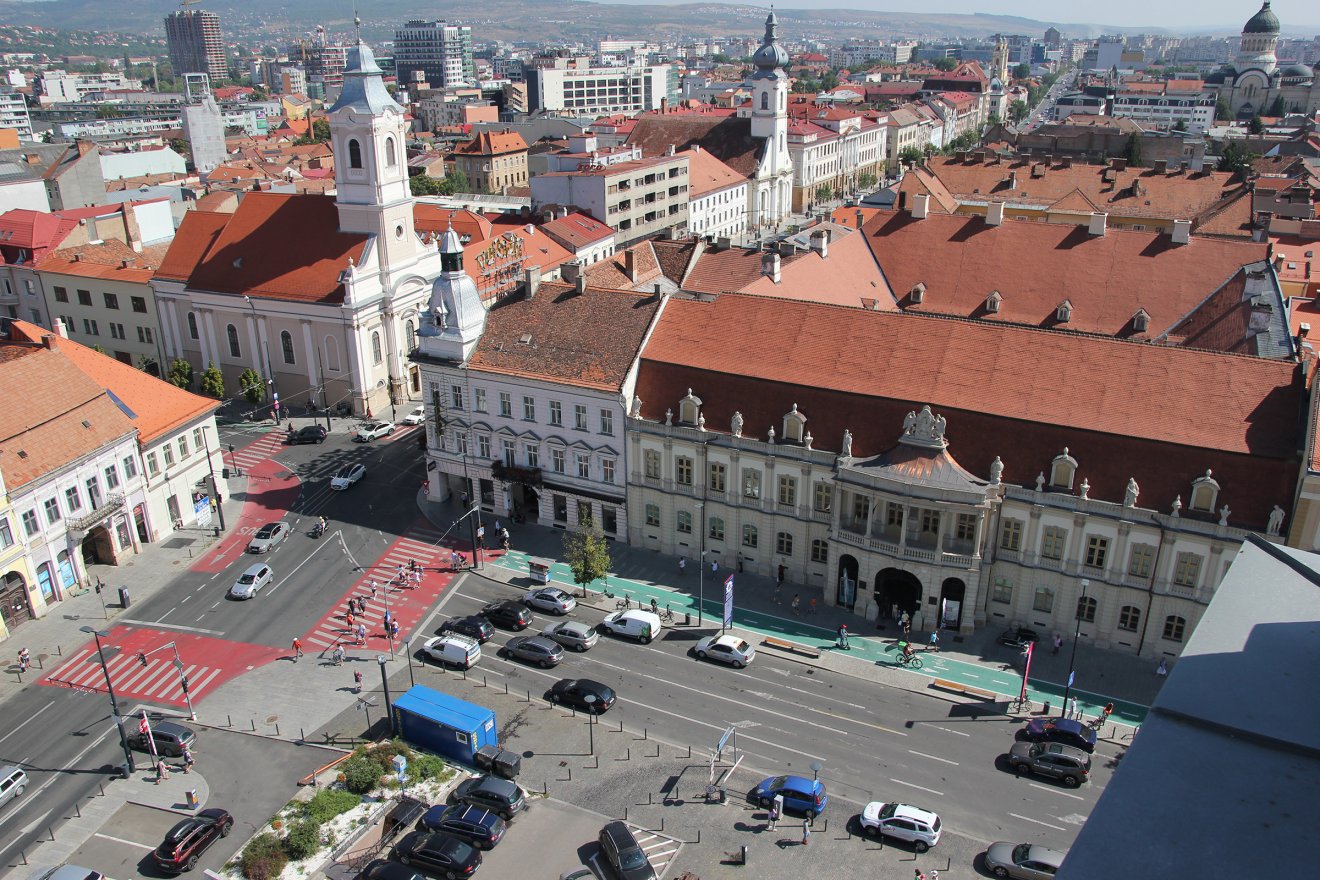
Fotó: Jakab Mónika
It’s long been common knowledge at this point that property prices in Cluj-Napoca are the highest in the country, rivaling those in major Western European cities. For years, many have viewed this as a bubble, hoping it would eventually "burst" following a potential global economic crisis or saturation of the IT sector. Others believe that property prices in Cluj-Napoca do not align with international patterns because they are artificially inflated. However, for now, it seems that the ballooning real estate market in the city is unlikely to decrease significantly in the near future – a view shared by experts consulted by Krónika. They attribute the astronomical prices in Cluj to several combined factors.
According to the latest statistics from September, the average price of apartments in Cluj-Napoca has now risen to €2,896 per square meter. “In order to get a sense of how expensive these prices are, all we have to do is compare it to other Romanian cities,” said Béla Gergely Rácz, Associate Professor at the Faculty of Economics and Business Administration at Babeș–Bolyai University. In Bucharest, the average is €1,802 per square meter; în Timișoara, it is €1,659; Oradea averaged €1,625 while Brașov is slightly higher at €1,986.
Clearly, Cluj-Napoca stands out in a dramatic way. Though in the meantime, annual price growth is 14 percent in Cluj which is comparable to Bucharest and other big cities which average around 10 to 15 percent growth. The key is, Cluj-Napoca started out much higher to begin with.
We asked Béla Gergely Rácz why home prices are increasing at such rates. „The price of real estate – as with other goods and services – is in part determined by incomes in the given city, along with supply and demand. While average earnings in Bucharest are higher than in Cluj-Napoca, housing prices are cheaper there. So the answer must be found elsewhere. One of the main reasons could be that Cluj is a very attractive city; many have invested in the city over the past few years and this has obviously left a mark on the real estate market, leading to increased demand as well as better living standards. Meanwhile however, demand has not kept up as construction of new homes is relatively slower than in other cities, and certainly slower than real estate investors would like. This is the main cause of the problem. The city hall issues building permits for major developments much more slowly than in other cities. Mayor Emil Boc says he is artificially withholding supply to avoid further paralyzing Cluj-Napoca's traffic and worsening residents’ quality of life. But this artificial restriction of supply has caused prices to skyrocket. We’re witnessing the effects of this today,” explained Rácz who also works as a city consultant.
Another factor is the city’s practice of approving large real estate developments on the condition that developers commit to building public infrastructure (such as roads, bridges, or nurseries) and giving it to the municipality for free. Though this adds costs for developers, the burden can easily be passed on to homebuyers due to the high demand.
Over the past ten years, prices have grown at the highest rate in Cluj-Napoca [compared to the rest of the country]; thus, many property investors (often for speculative reasons) decided that this city is the best one to invest in. This again results in higher prices as demand grows not due to housing needs, but rather investment interest. If one bought a property in Bucharest, Timișoara, Brașov, or Cluj-Napoca ten years ago and sold it today, they’d have made the most profit in Cluj-Napoca,” said Rácz.
He provided numbers to illustrate this trend. In 2014, the average price per square meter in Cluj-Napoca was €959. Today, it’s €2,896. In contrast, Bucharest’s average price per square meter grew from €961 to just €1,802 over the same period. Ten years ago, the real estate market was much more balanced: a square meter of property in Romania’s big cities ranged between €900 and €1000. Today, Cluj-Napoca’s skyrocketing prices cannot be compared or explained by growing inflation nor wages.
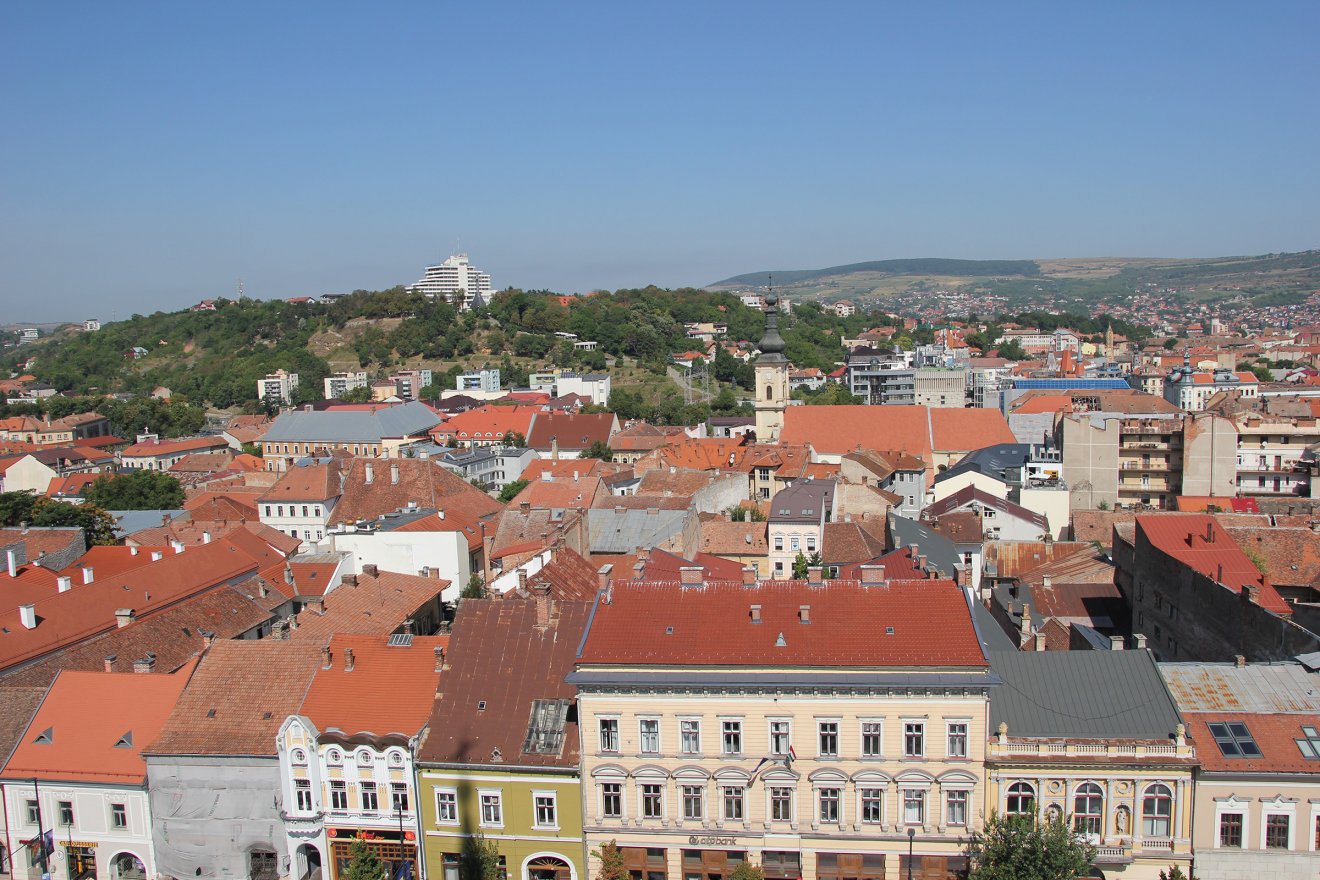

Fotó: Jakab Mónika
“I see four main reasons for the atypical real estate market here. First off, supply is not expanding at a natural, market-based rate as it is being artificially restricted. Simultaneously, investors buying property boost demand on top of that. The third reason – and something I think is one of the biggest disadvantages of this rapid growth – is the overall economic health of Cluj-Napoca: as it has developed into one of Romania’s most prosperous cities, second only to Bucharest, the indicators have shot up here. However, these are just averages, average wages and GDP per person,” explained the economist.
“If we break down the numbers behind these indicators, it becomes evident that there are major income disparities. In other words, if everyone in Cluj-Napoca made the average income, then prices would not be at this point. We can see that there is a top 20 percent that makes quite a lot of money, and a bottom 20-25 percent that makes very very little. And the top 15 percent, who until now have typically worked in IT or other well-paying sectors, could afford — and still can afford — to pay for, or at least take out loans for, properties where the price per square meter is now approaching 3,000 euros. However, the remaining 80 percent cannot afford this, or only at great personal sacrifice, which can and already is leading to significant social tensions,” elaborated Rácz. He went on to list the fourth reason: the aforementioned construction strategy on the part of the city administration which expects free public works in exchange for building permits. This all contributes to the rising prices.
Béla Gergely Rácz believes that the city has essentially trapped itself; if prices stay at this level in the long-term, then many will decide to move because the city is simply too expensive. Moreover, students – who drive development – may not come to the city to study. However, if this does happen then it could result in price corrections, but also overall prosperity reduction as well. “But I do not think any enormous price reductions are likely to occur in the near future. So, anyone expecting that the various post-election austerity measures (since these are likely to happen, though not yet confirmed) and the slowing economic growth will lead to a significant drop in property prices is deluding themselves. It is highly unlikely that prices will decrease. Instead, I anticipate that the rate of growth will slow down," predicted the university lecturer.
„As I already mentioned, many people have purchased properties for investment purposes, and they say they’ll wait it out. If prices drop or they can't sell, they may simply decide not to lower the price and hold out. Over the past two years, we’ve already seen a trend where the number of real estate transactions in Cluj-Napoca has decreased in many months, but prices haven’t dropped. This is an important factor behind that. Under such circumstances, I don’t believe property prices in Cluj will significantly decrease in the next few years. Of course, if there should be a strong economic downturn, prices might drop somewhat, but a substantial decline is not expected. Instead I believe prices will peak at roughly around this level, meaning they won’t rise much more in nominal terms. However, wages will almost certainly increase over the next 5–10 years,” predicted the economic expert.
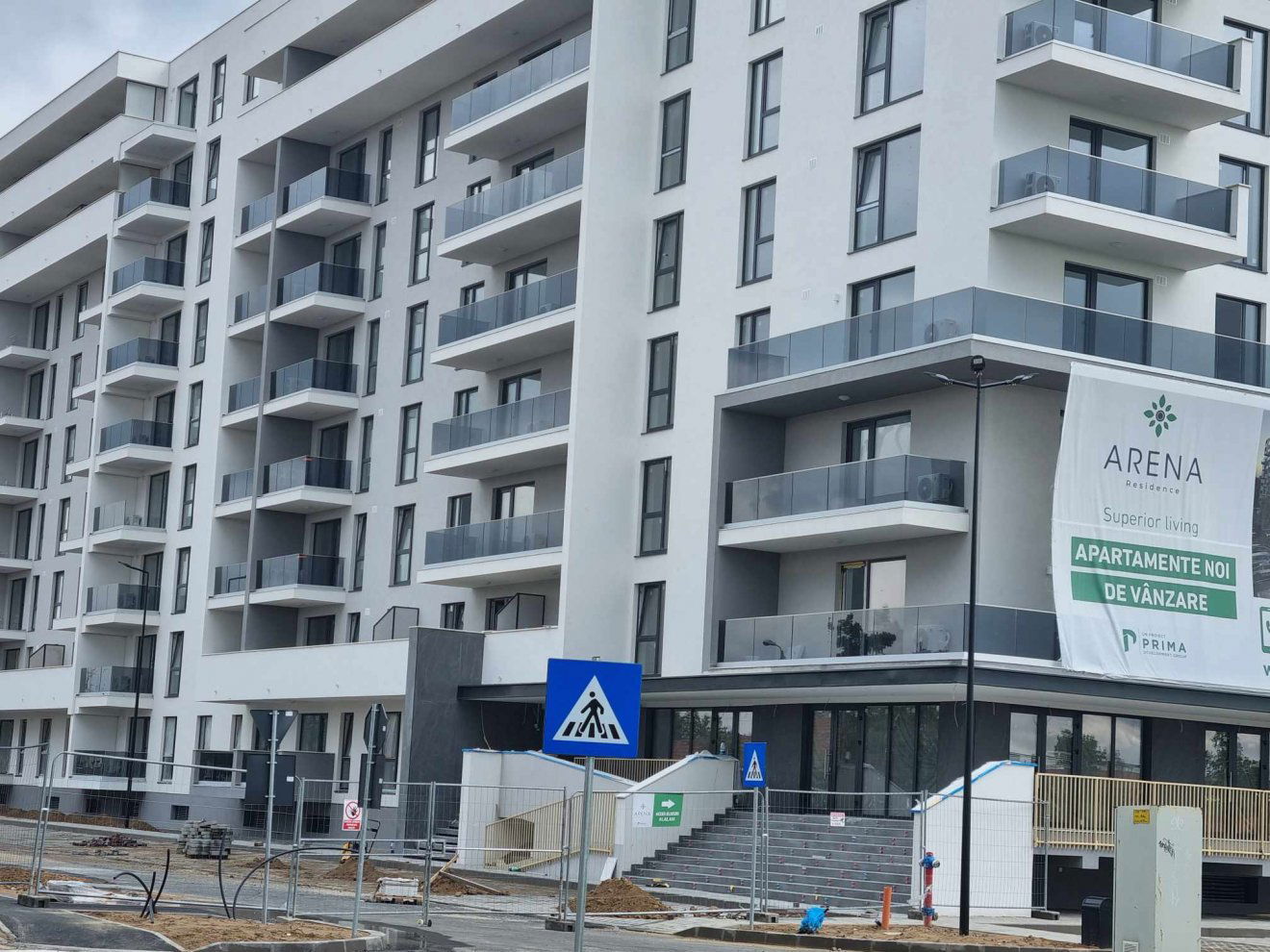

Fotó: Bálint Eszter
In other words, in the long term, the pool of people who can afford to buy a home in the “treasure city” is likely to expand to some extent. "This includes those who can secure loans to purchase a home. The portion of people who can pay outright is already very small, but the number of people whose incomes will allow them to take out a loan large enough to buy property will likely grow," summarized Béla Gergely Rácz.
Endre Bónis, owner of the Cluj-based Reform real estate agency, does not anticipate any major fluctuations in property prices. When we contacted the expert, he first pointed out that it is currently a debated issue whether real estate prices in Cluj-Napoca are actually rising or falling, as there are examples of both. He added that while many believe the market is only seemingly booming — though his company just closed a decidedly successful half-year — there are also properties on the market that, for reasons difficult to understand, are simply impossible to sell.
Over the past four years, real estate prices have risen by 30–40 percent, which could partly explain why there are fewer transactions. “Imagine someone who, for the past ten years, has been waiting with 100,000 euros in hand for the real estate bubble to burst, hoping to finally buy their dream home... Ten years ago, this amount would have bought a three-room apartment; now, it’s only enough for a studio,” highlighted Bónis. He added that the market has reached such heights in the capital of Transylvania that in the Gheorgheni (Györgyfalva) neighborhood, that a 27-square-meter studio apartment can now be listed for over 90,000 euros.
“Compared to demand, relatively few properties are being built, and very few construction permits are issued. Experts estimate that the city’s population increases by approximately 10,000 people annually, but this growth is not matched by the number of newly issued building permits. The consequence is greater demand for existing properties, leading to higher prices,” he outlined. According to him, as long as this trend persists — unless the number of university students decreases significantly or the IT sector collapses — no change can be expected in the local real estate market.
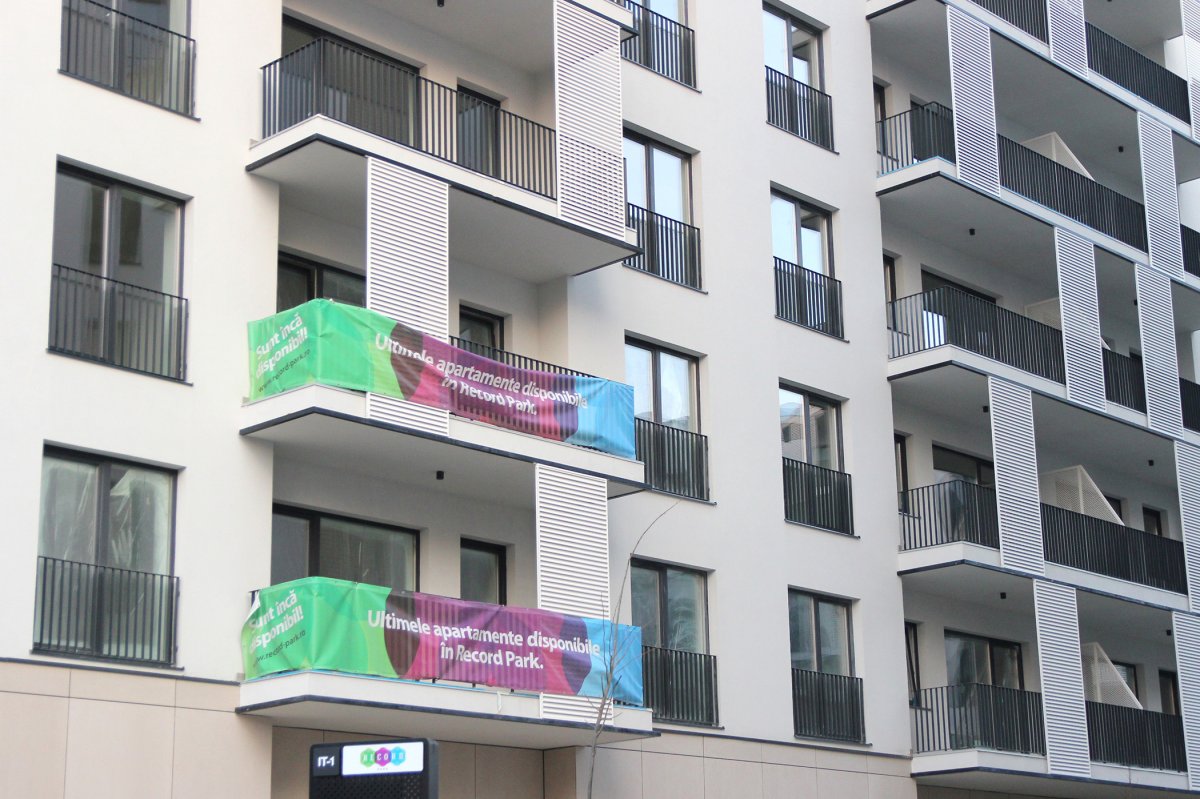

Fotó: Jakab Mónika
“I would also add that the high prices and the significant difference between Cluj-Napoca and other major cities in the country are due to Cluj being a knowledge- and commerce-oriented city. Here, the demand for housing is driven by an academic and above-average earning demographic. Industry is almost entirely absent, whereas in other major cities like Arad, Timișoara, or Oradea, a large proportion of jobs come from the currently much lower-paying industrial sector. Cluj-Napoca, as the country’s most youthful city, is built on knowledge, healthcare, and commerce, which also contributes to the improbability of a price drop in the near future,” said Endre Bónis.
"The demand is so high that currently, even a dark, windowless hole can be rented out in any corner of the city. However, wage growth has not been as dynamic as the rise in property prices. In fact, if we account for inflation, we can even interpret wage decreases because in many cases, raises have not kept up with inflation," he stated, adding that this certainly does not mean rental prices are affordable compared to incomes. For instance, a two-room apartment cannot be found for less than €450, and a three-room one starts anywhere between €600 and €700.
Endre Bónis pointed out that while the high real estate and rental prices force many — especially large families — to move out of Cluj-Napoca to surrounding satellite towns, this "doesn’t solve the issue," as there are still plenty of people who want to move here to take advantage of what the city has to offer. "If we compare the average price per square meter of properties in Cluj-Napoca with those in other similarly sized cities in the country or region, the difference is striking: €1,200 per square meter versus €2,700 per square meter.
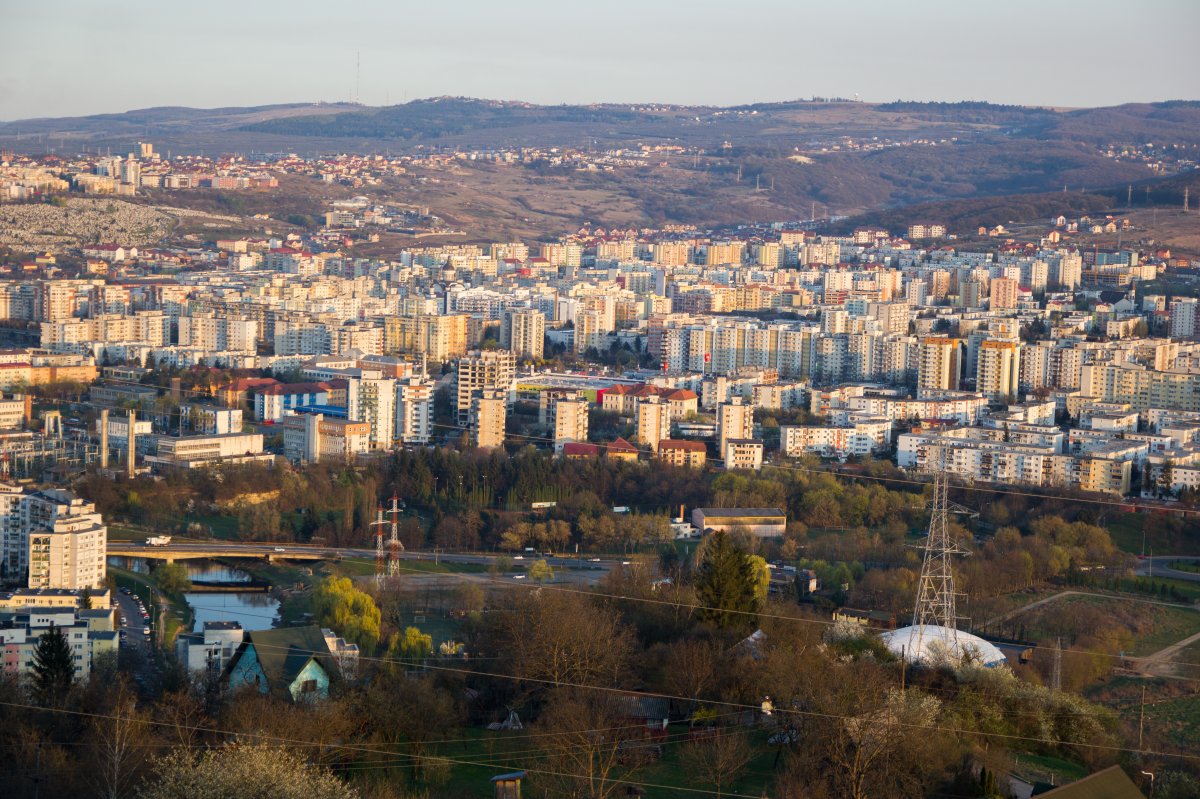

Fotó: Jakab Mónika
This roughly reflects just how much more Transylvania’s capital has to offer in terms of cultural programs, events, festivals, venues, daily activities, well-paying jobs, and opportunities. These factors make it more attractive and vibrant compared to other inexpensive but quiet, ‘sleepy’ towns. “I believe the situation appears stable for now, and I don’t expect significant pricing fluctuations in the near future," the expert concluded.
“There’s definitely no bubble to speak of, as real estate prices can’t be capped; it’s a free market influenced by numerous factors,” stated Márton Kun in response to a query from our paper. The Romanian owner of GDN Real Estate Network emphasized that in Cluj, the decreasing supply of properties is a significant issue. The number of new apartments is not keeping pace with demand, which adds pressure on prices.
One reason for this, in his opinion, is that the Cluj-Napoca City Hall and surrounding municipalities issue relatively few building permits, and the process for both houses and apartment complexes is time-consuming.
The head of the franchise explained that rental prices also influence property values. If someone buys an apartment as an investment, it’s much easier and quicker to rent it out in Cluj-Napoca than in cities like Satu Mare, Zalău, or Bistrița. Additionally, interest rates impact both the volume of home purchases and property prices, as around 40–50 percent of transactions are mortgage-based.
Márton Kun observed that Cluj-Napoca’s property prices have increased almost linearly, by at least 7–10 percent annually. “Of course, this depends on the district and the type of apartment, and it also matters which price ranges we’re looking at, but on average, there’s been growth. This is partly due to inflation, which, unfortunately, has been relatively high over the past two to three years. Now, inflation is showing a downward trend, so interest rates have also started to decline. However, this leads to renewed demand, which in turn drives prices higher,” he explained.
According to the real estate agent, this trend is likely to continue over the next few months. However, it’s difficult to predict the long term because many factors influence housing prices, and a change in any one of them could have an impact on the real estate market.
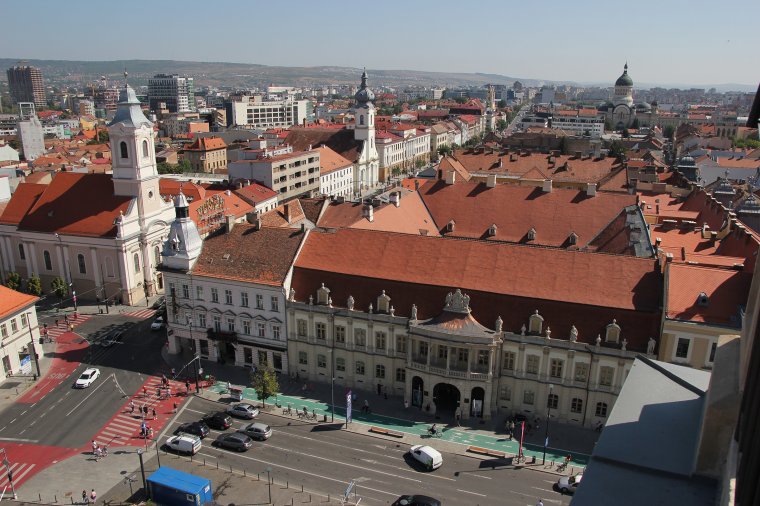
Hiába várják sokan hosszú évek óta, a közeljövőben nem fognak látványosan csökkenni a hatalmasra duzzadt kolozsvári ingatlanárak – vallják a Krónika által megkérdezett szakemberek, akik szerint több tényező együttállása alakította az árakat.
As of August 1, shoppers will have to dig deeper into their pockets – partly due to a 2–12% increase in the value-added tax (VAT), and partly due to the rise in excise duties.
“I would like to speak with Romania’s new president as soon and as extensively as possible, because we have shared issues within the European Union, and the interests of Romanians and Hungarians often align," Prime Minister Viktor Orbán told Krónika.
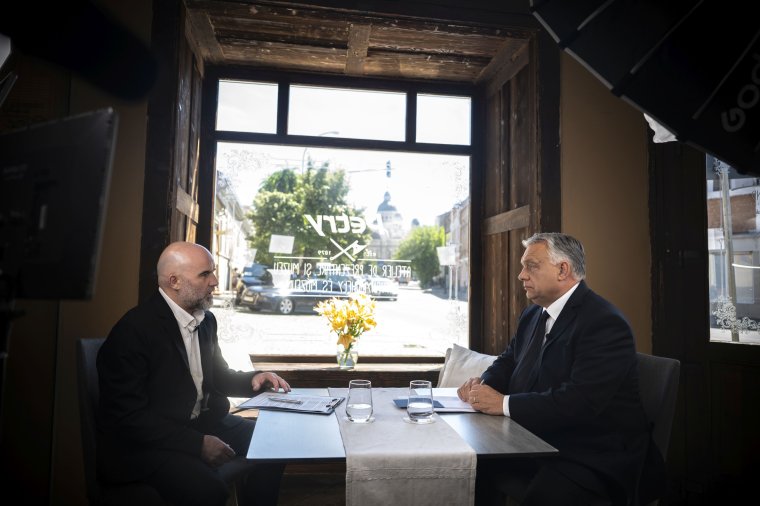
Although Romania is in urgent need of major adjustments given its struggling financial situation, the four-party coalition was only just formed following the presidential election in May.
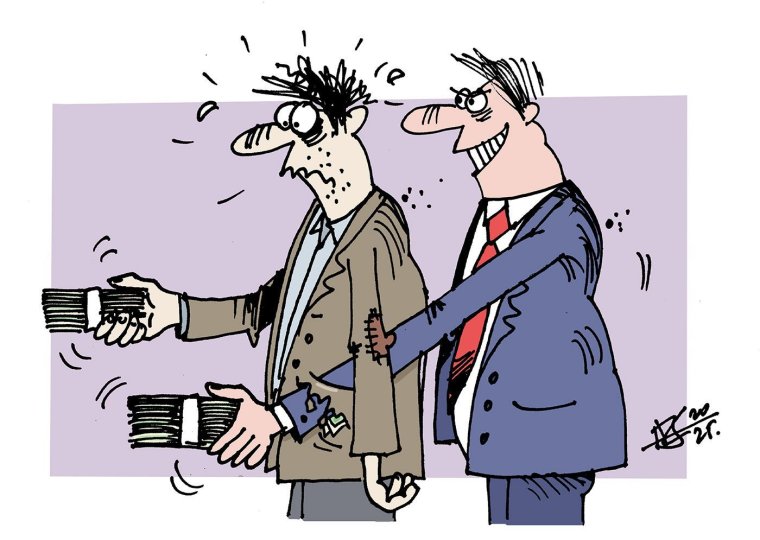
Desperate, silent people, hopelessness, and the authorities’ secrecy characterize the situation in Parajd (Praid) following the salt mine tragedy.
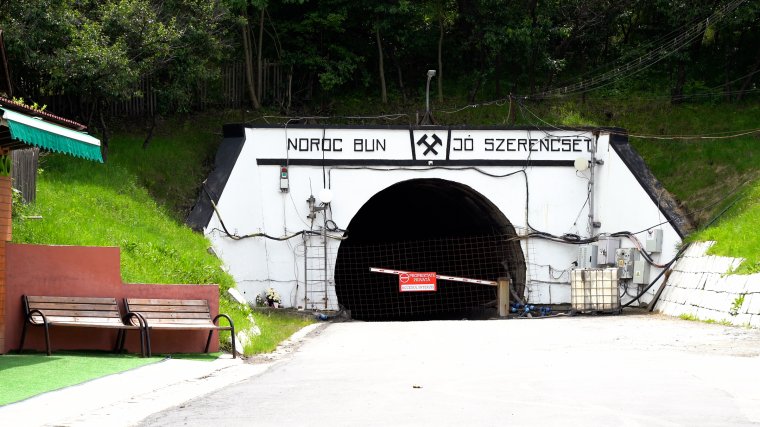
Romania has lost the most residents over the past 20 years among the EU member states according to the „Demography of Europe – 2025 edition” research by the Eurostat statistical office.

I would like to share a personal story from 1986 that I have never told before. I had just finished my first year studying physics at university.

While Sunday’s first-round results of Romania’s presidential election were not entirely unexpected, the outcome delivered a political shock of historic proportions.
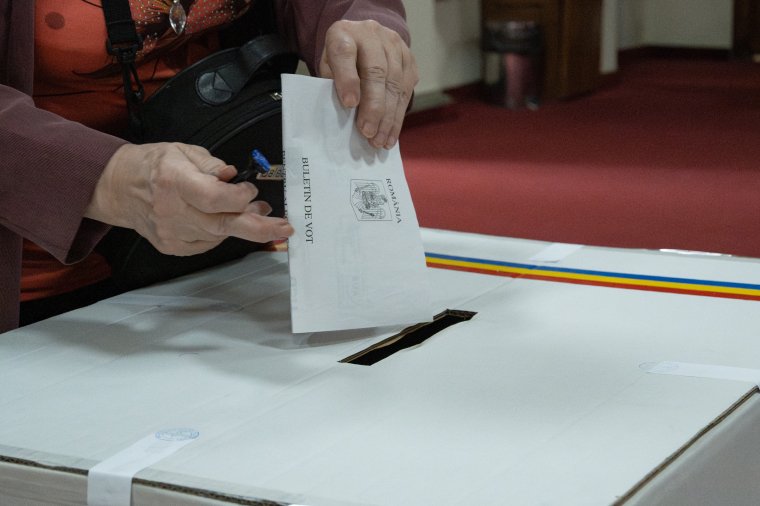
Pope Francis, who passed away on Easter Monday at the age of 88, left behind an exceptional legacy. Papal Prelate József Marton spoke to Krónika about the Pope’s role in the history of the Catholic Church and his visit to Csíksomlyó.
It took Emil Boc a long time to recover from the punch in the face that shattered the smiling cityscape posing as the poster child of multiculturalism.
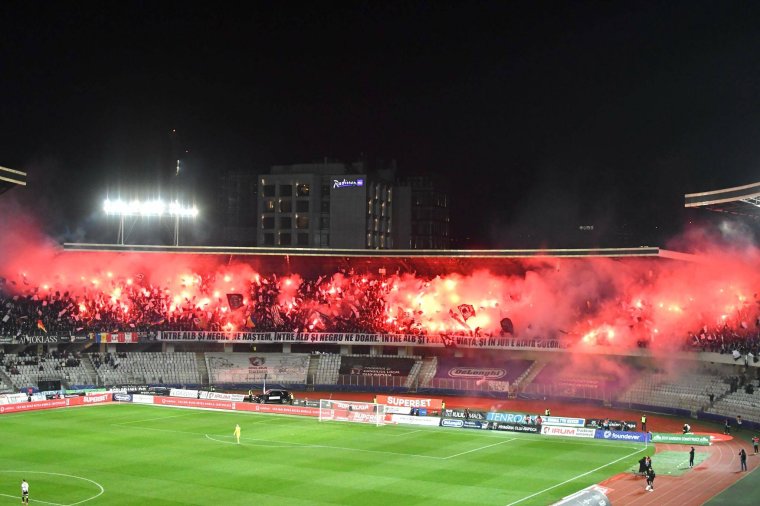
Monday night's match between the Cluj-Napoca Universitatea (“U”) and CFR football teams ended in a street fight.
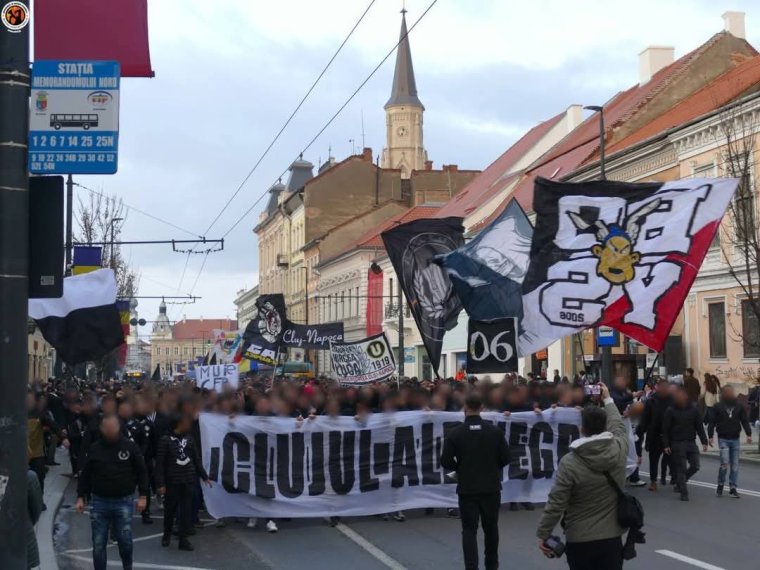
szóljon hozzá!